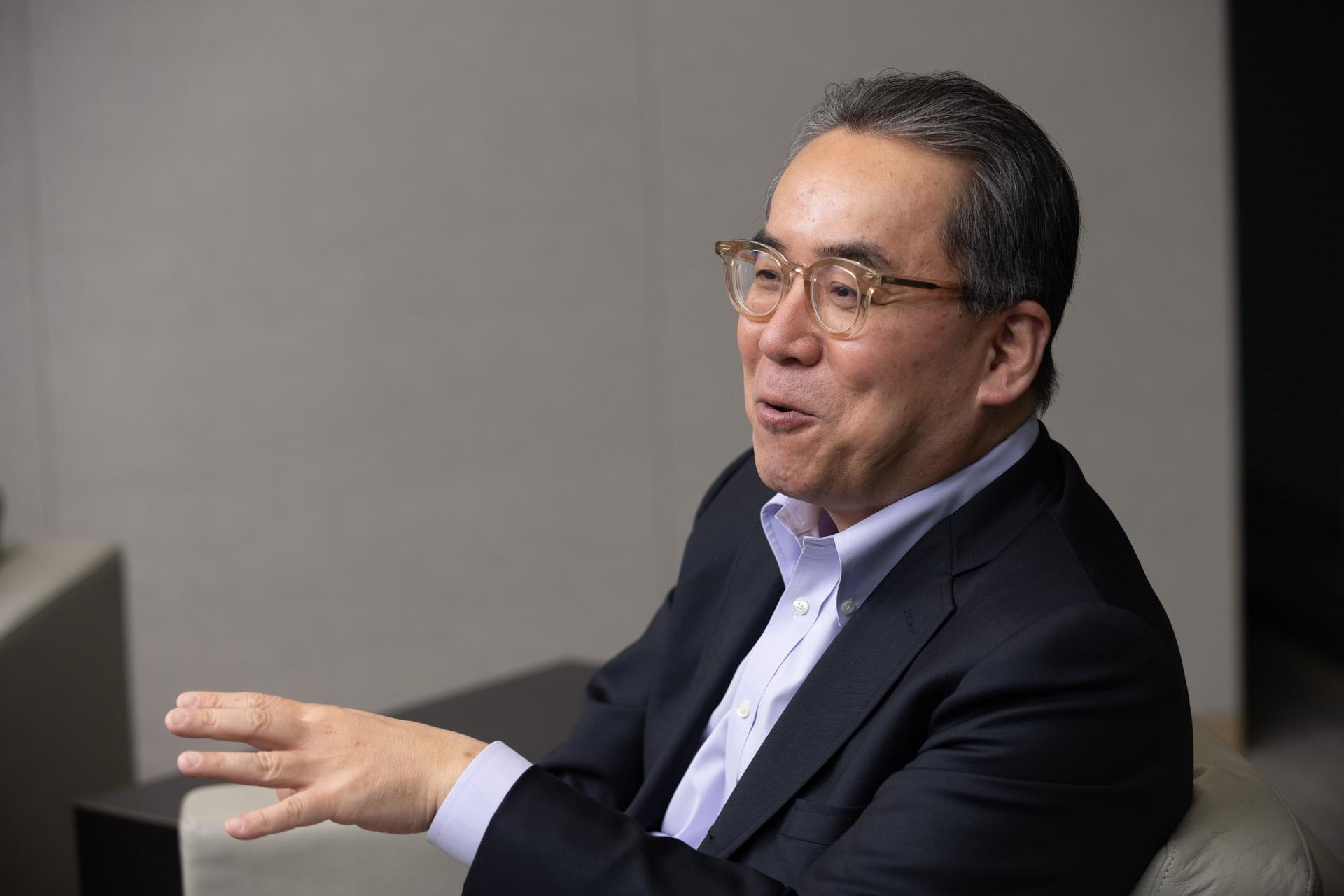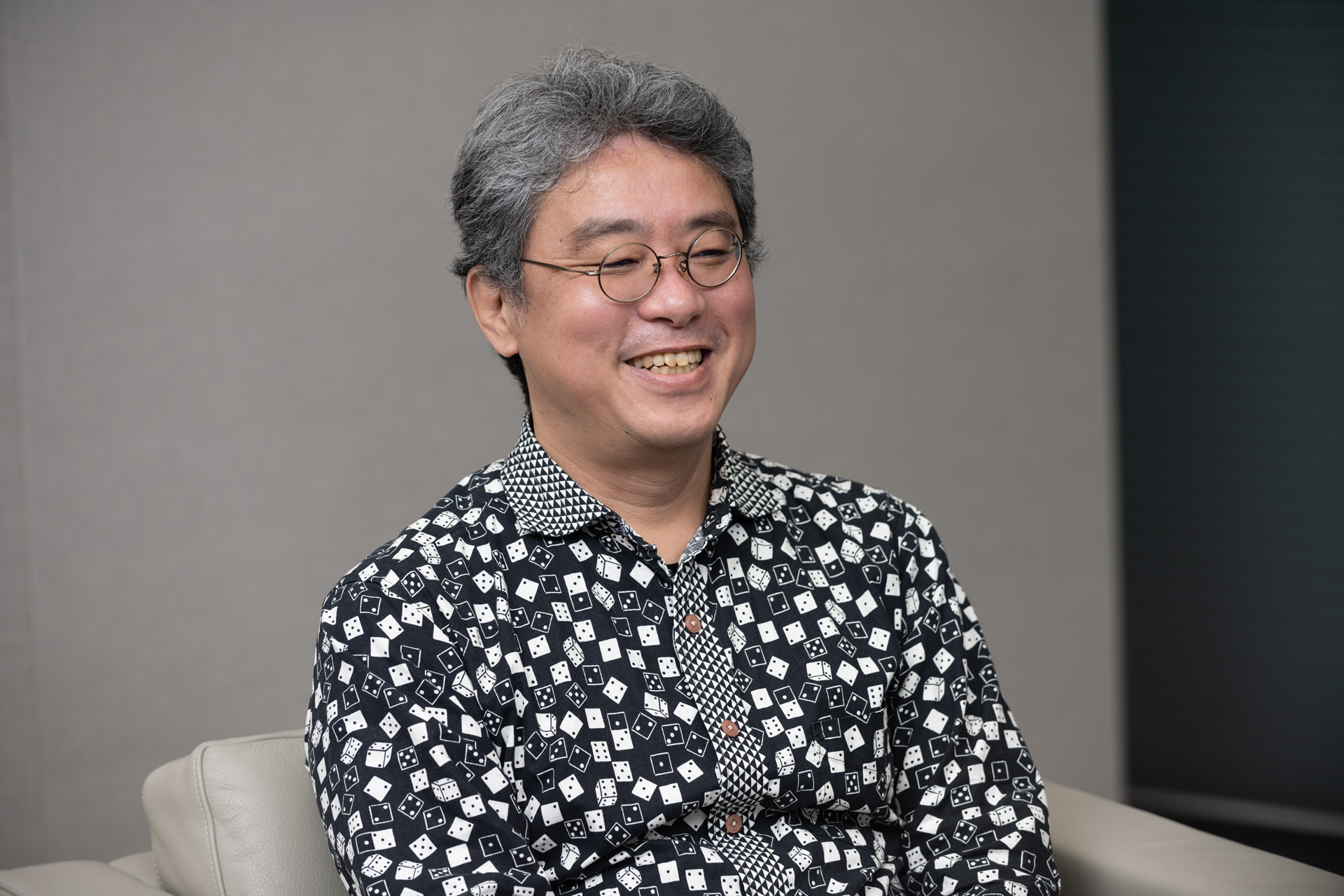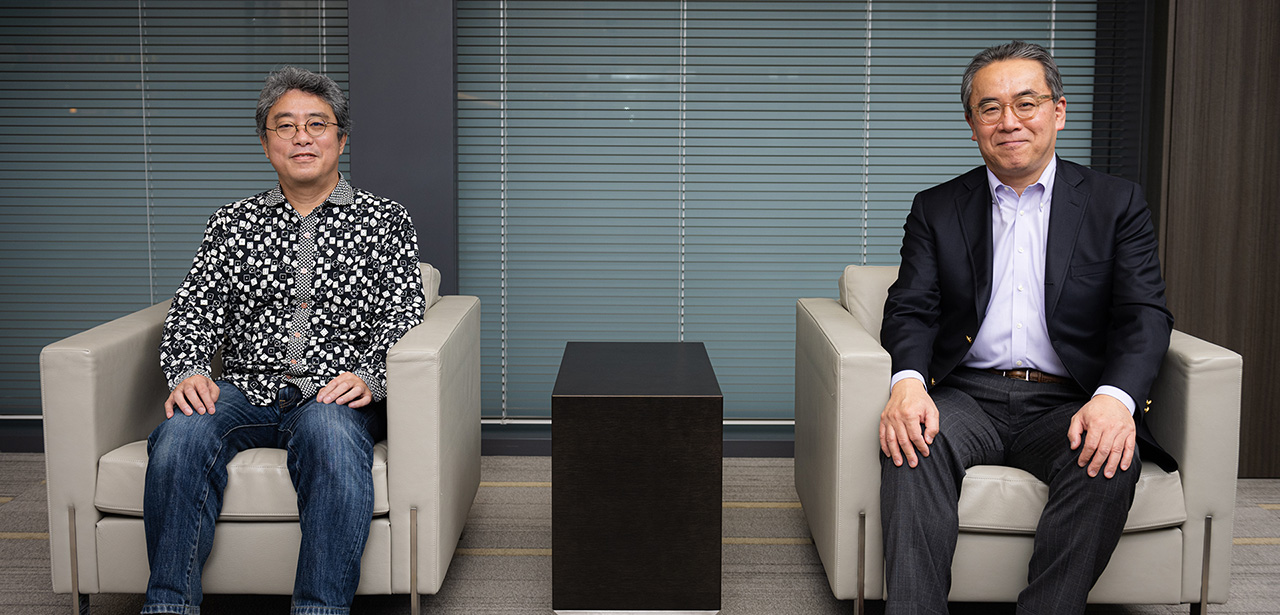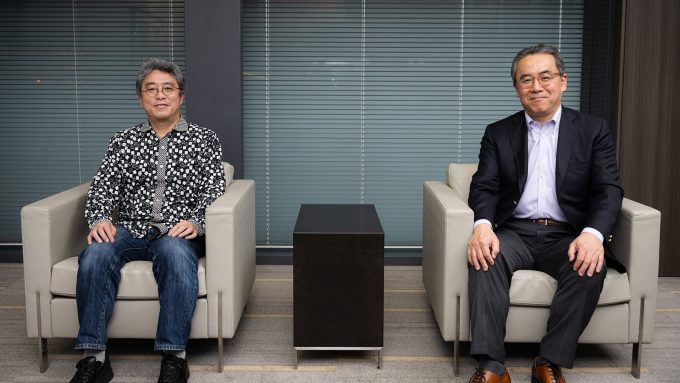“WE DISCUSS VANA’DIEL” is a series of conversations between Producer Matsui and special guests who are familiar with FINAL FANTASY XI (FFXI). Our ninth guest is Yosuke Matsuda, the President and CEO of Square Enix. In this third part, he shared his thoughts on, and involvement with, FFXI when it was finally released.

President and CEO of Square Enix. Following his career as a certified public accountant (CPA), he joined Square (now Square Enix) and was primarily responsible for the company’s financial and accounting operations. In 2013, he was appointed President and CEO of Square Enix and Square Enix Holdings.
The announcement of FFXI and PlayOnline during the dot-com bubble
Now let’s move on to FFXI, the main subject of our discussion. FFXI was not only a numbered title in the FF series, but the first MMORPG in the series as well. What were your views on the game at the time, President Matsuda?
- Matsuda
At the time, I had temporarily left Square and returned to the CPA industry, so I caught wind of the announcement through Nihon Keizai Shimbun (a Japanese financial newspaper). Mr. Takechi*, Mr. Sakaguchi*, and Mr. Suzuki* all came together and announced FFIX, FFX, and FFXI all at once, so it was a big surprise. FFXI, revealed in conjunction with the PlayOnline framework, was especially impressive.
* Tomoyuki Takechi, former President of Square. * Hironobu Sakaguchi, one of the founders of the FF series. * Hisashi Suzuki, former President of Square. The PlayOnline framework wasn’t just for games; the online platform strove to host a wide variety of content in a single place, such as Avex’s music, Shueisha’s manga, and DigiCube’s online shopping. Although many of the ideas didn’t work out in the end, it was truly a revolutionary announcement.
- Matsuda
Back then, the dot-com bubble was at its peak across the globe, and the total market value of the game industry had grown beyond 1 trillion yen (roughly 8 billion USD). So based on those circumstances, I remember thinking that the PlayOnline plan itself could be a viable avenue for Square to pursue. That being said, I was taken aback when I later learned almost all in-house development lines were being funneled into the three announced titles, namely FFIX, FFX, and FFXI. (laughs) I believe it was all of the teams, aside from Mr. Kawazu’s* team?
* Akitoshi Kawazu, founder of the SaGa series.

- Matsui
It was decided that Mr. Kawazu’s team would be working on a title for the WonderSwan* so they were focused on that. From what I remember, aside from them, essentially all of the key teams were working on new titles for the FF series.
* The WonderSwan is a handheld gaming console released by Bandai (now Bandai Namco) in 1999. - Matsuda
At the time, EverQuest* was very popular overseas, which Mr. Sakaguchi and Mr. Tanaka also became engrossed with and said, “We definitely ought to create an MMORPG too!”
* EverQuest is an MMORPG from overseas that began service in the United States in 1999. - Matsui
That's right. Looking back, I still think it was truly amazing how they were able to make that decision to pour in all of those development resources when there was no precedence in Japan.
Releasing the game for the PlayStation 2 was also a remarkable achievement.
- Matsuda
During that era, everyone’s focus was centered on the internet, even Mr. Kutaragi* of Sony Interactive Entertainment. I imagine Square saw that and decided to take part in the trend themselves.
* Ken Kutaragi, President and CEO of Sony Interactive Entertainment at the time. That must’ve been around the time that continuous connections were starting to become widespread through ADSL.
- Matsuda
But in reality, the PlayStation 2 couldn't connect to the internet by itself. In order to play FFXI, you needed to purchase additional accessories like the PlayStation BB Unit, which served as a barrier for players trying to play.
After that, the Windows PC version became available.
- Matsuda
FFXI is a numbered title in the FF series after all, so in consideration of global operations, the PC version was being developed in parallel. Due to various reasons, the PS2 version ended up being released first, but the PC version was released in just over a year.
I remember being amazed by how beautiful the graphics were on the Windows PC version. The average PC around the time Rise of the Zilart was released would've struggled to sufficiently run FFXI in high resolution mode (1024 x 768 pixels).
- Matsui
The specifications for graphics cards in particular just couldn’t keep up. When we brought it up with PC manufacturers, they’d ask us, “Can this even run on PCs?” Because of that, we developed the Vana’diel Bench so players could confirm whether FFXI would run well enough on their PC. It ended up being a popular feature, but the high specifications required for FFXI were probably a large reason why it was created.

Turmoil arising from popularity
Could you share your thoughts on the turmoil that arose immediately after FFXI’s release?
- Matsuda
Immediately after FFXI was released, the high traffic from customers resulted in a situation where players were unable to log into the game.
From what I've heard, it had to do with the payment system getting overloaded, rather than the game side of things.
- Matsuda
That's right. FFXI is a numbered title in the FF series, a pioneering endeavor of online games in Japan, and to top it all off, it was developed for home consoles. All of these reasons attracted a large number of customers who were trying online games for the first time. That heightened attention came with a risk, one that became apparent with the turmoil that ensued. For a while, we were bombarded with operational tasks, including making an apology advertisement in the national newspaper.
- Matsui
They seemed so overwhelmed that even though the development team also had its hands full at the time, for that particular incident, I felt like I’d gotten off easy by being on the development side of things.




